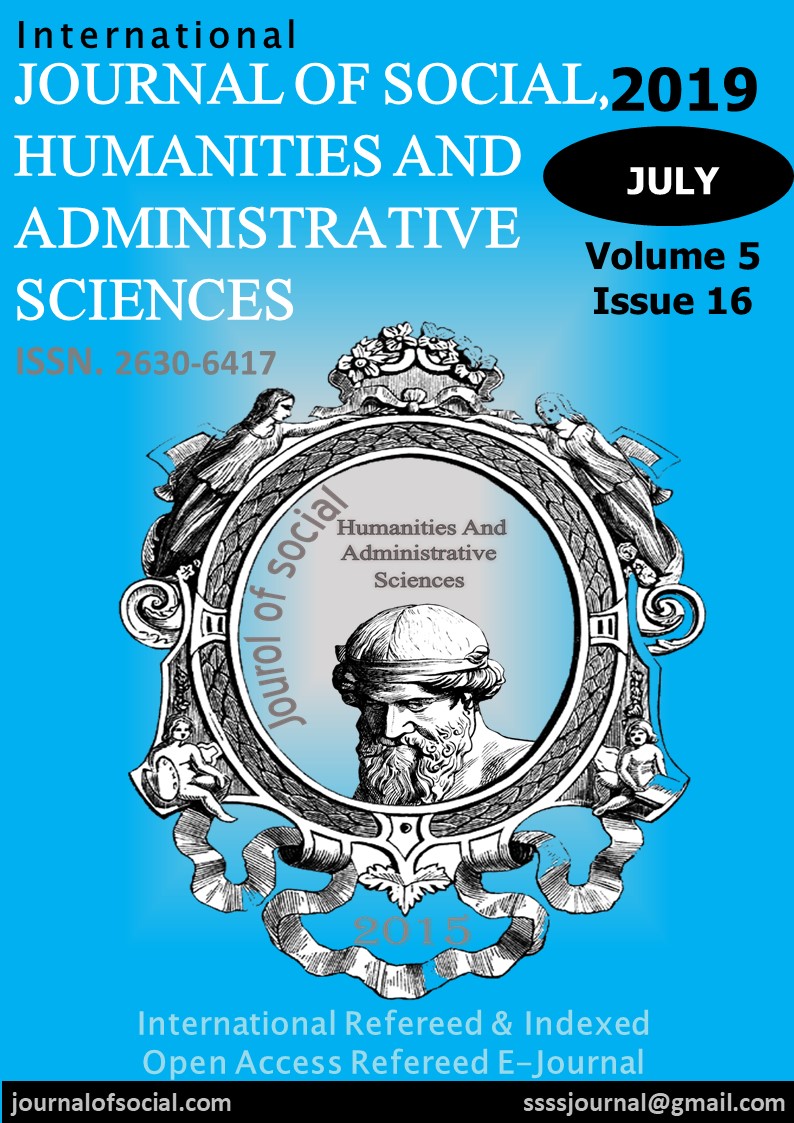SİVİL TOPLUM VE TÜRKİYE’DE EĞİTİM ALANINDA FAALİYET GÖSTEREN SİVİL TOPLUM KURULUŞLARI: DERNEKLER, VAKIFLAR VE SENDİKALAR
Author :
Abstract
Bu çalışmada, Türkiye’de eğitim alanında faaliyet gösteren sivil toplum kuruluşlarından dernekler, vakıflar ve sendikalar incelenip analiz edilmiştir. Çalışma sonucunda genel anlamda Türkiye’deki sivil toplum kuruluşlarının özel anlamda ise eğitim sivil toplum kuruluşlarının “Batılı anlamda” çağdaş niteliklere sahip olmadıkları görülmüştür. Gelişmiş ülkelere bakıldığında gerek eğitim gerekse diğer hizmet alanlarda üç farklı sektörün el ele hareket ettiği görülmektedir. Bunlar; kamu sektörü, özel sektör ve üçünü sektör yani sivil toplum kuruluşlarıdır. Ancak Türkiye’de eğitim alanındaki çalışmaların büyük bir çoğunluğunun devlet eliyle gerçekleştirildiği ve sivil toplum kuruluşlarının devlete nazaran çok az bir etkiye sahip oldukları bilinmektedir. Oysa gelişmiş ülkelerde sivil toplum kuruluşlarının eğitime, gerek politika belirleme ve araştırma yapmakla gerekse maddi imkânlar sağlamakla büyük güce sahip oldukları bilinmektedir.
Keywords
Abstract
In this study, associations, foundations, and unions from non-governmental organizations, active in the field of education in Turkey, have been observed and analyzed. In the results of the study, it is seen that in general terms non-governmental organizations, and in specific terms educational non-governmental organizations don’t have contemporary qualifications in “Western sense” in Turkey. Considering to developed countries, it is seen that 3 different sectors go hand in hand both in education and in other service areas. These are public sector, private sector, and third sector, i.e. non-governmental organizations. But it is known that the majority of the work in the field of education is carried out by the state, and non-governmental organizations have little effect compared to the state. Whereas it is known that non-governmental organizations have a great power both determining policy, and researching and providing financial opportunities to education in developed countries.
Keywords
- Akpınar, A. (1997). “Sivil Toplum: Düşünsel Temelleri ve Türkiye Perspektifi” Doktora Tezi,
- Akpınar, A. (1997). “Sivil Toplum: Düşünsel Temelleri ve Türkiye Perspektifi” Doktora Tezi, Ankara Üniversitesi Sosyal Bilimler Enstitüsü, Ankara.
- Arslan, O. (2001). Kurumsal ve Tarihsel Aşamalarıyla Sivil Toplum ve Türkiye Gerçeği, Bayrak Yayınları, İstanbul.
- Başlar, K. (2005). Uluslararası Hukukta Hükümet Dışı Kuruluşlar, Nobel Yayınları, Ankara.
- Berber, Ş. (2000). “Sivil Toplum Kuruluşları Ve Türk Eğitim Sistemi”, Selçuk Üniversitesi Sosyal Bilimler Meslek Yüksek Okulu Dergisi, Sayı:4, 119-154.
- Çaha, Ö. (1996). Sivil Kadın: Türkiye’de Sivil Toplum Ve Kadın, Vadi Yayınları, İstanbul. Çaha, Ö. (2000). Aşkın Devletten Sivil Toplumu, Gendaş Yayınları, İstanbul.
- Çaha, Ö. (2005). Sivil Toplum ve Demokrasi, Kaktüs Yayınları, İstanbul.
- Eraslan, L. (2011). Sivil Toplum ve Eğitim, Maya Akademi Yayınları, Ankara.
- Ercan, H. (2002). “Türkiye’de Sivil Toplum Tartışmaları Üzerine”, Cumhuriyet Üniversitesi Sosyal Bilimler Dergisi, 26(1): 69-79.
- Güder, N. (2004). Sivil Toplumcunun El Kitabı, Sivil Toplum Geliştirme Programı, Sivil Toplumu Geliştirme Merkezi Yayınları, Ankara.
- Hobbes, T. (1992). Leviathan (Çev.: Semih Lim), Yapı Kredi Yayınları İstanbul.
- Keane, J. (1993). Sivil Toplum Ve Devlet (Çev.:Erkan Akın), Ayrıntı Yayınları, İstanbul.
- Mardin, Ş. (1997). Makaleler I: Türkiye’de Toplum Ve Siyaset, İletişim Yayınları, İstanbul.
- Noyan, C. (2007). “Türkiye’de Avrupa Birliğine Uyum Sürecinde Sivil Toplum Örgütlerinin Yeri Ve Önemi”, Yüksek Lisans Tezi, Niğde Üniversitesi Sosyal Bilimler Enstitüsü, Niğde.
- Özer, M. H. (2008). “Günümüz İtibariyle Sivil Toplum Kuruluşlarının İktisadi Ve Sosyal Fonksiyonları”, Elektronik Sosyal Bilimler Dergesi, 26(7): 86-97.
- Öztürk, N. (2003). Osmanlı Döneminde Vakıflar, Türkler Ansiklopedisi, Türkiye Yayınları, Ankara.Selamoğlu, P. (2008). “Avrupa Birliğine Giriş Sürecinde Türkiye’de Sivil Toplum Örgütleri”, Yüksek Lisans Tezi, Kırıkkale Üniversitesi Sosyal Bilimler Enstitüsü, Kırıkkale.
- Tamer, M. G. (2010). “Tarihsel Süreçte Sivil Toplum”, Eğitim Fakültesi Dergisi, 27(1): 89-105.
- Toqueville, A. D. (1994). Amerika’da Demokrasi, (Çev.:İhsan Sezal&Fatoş Dilber), Yetkin Yayınları, Ankara.





